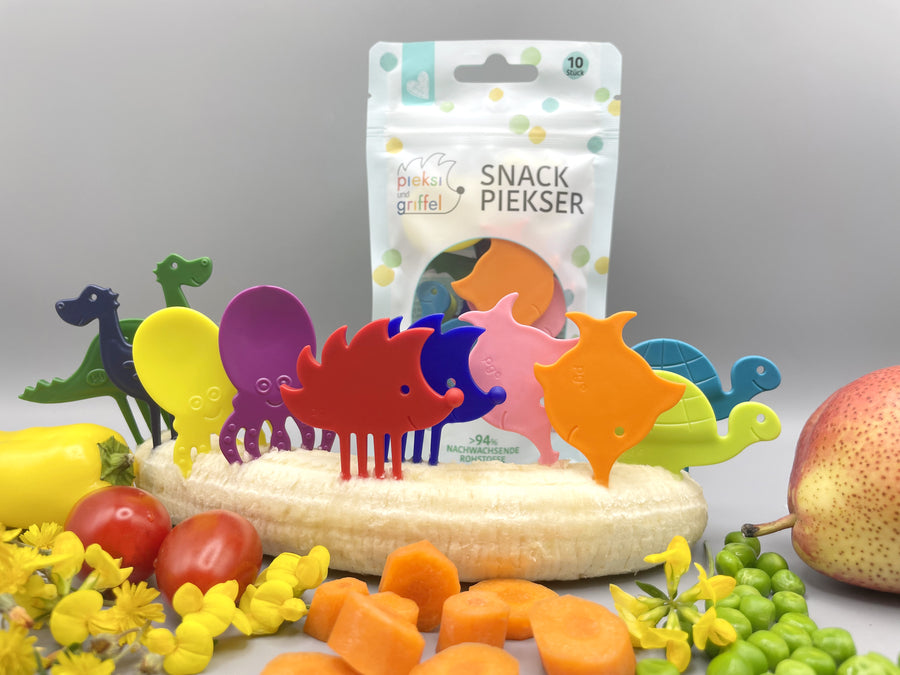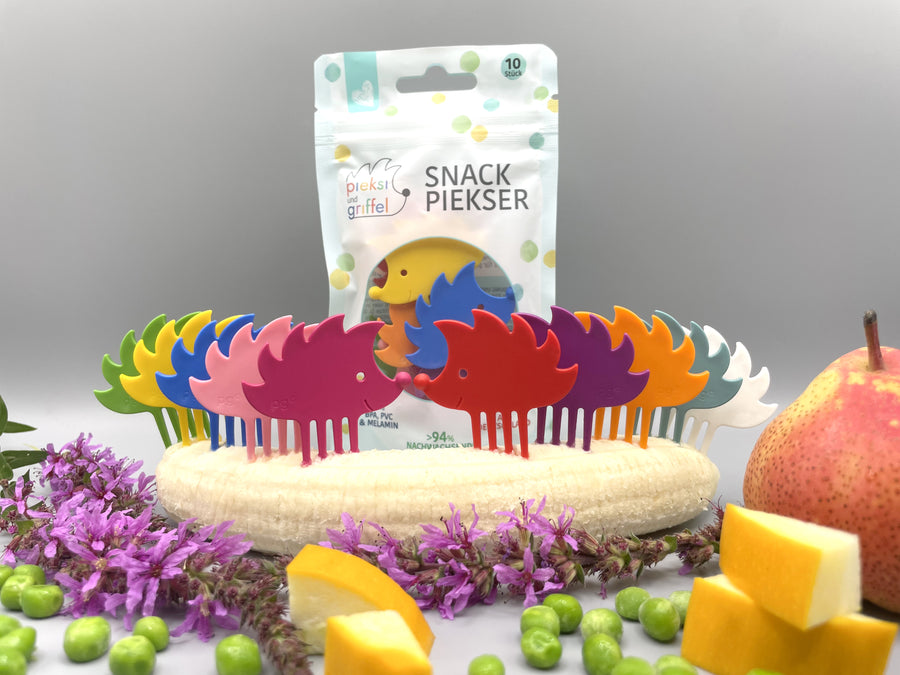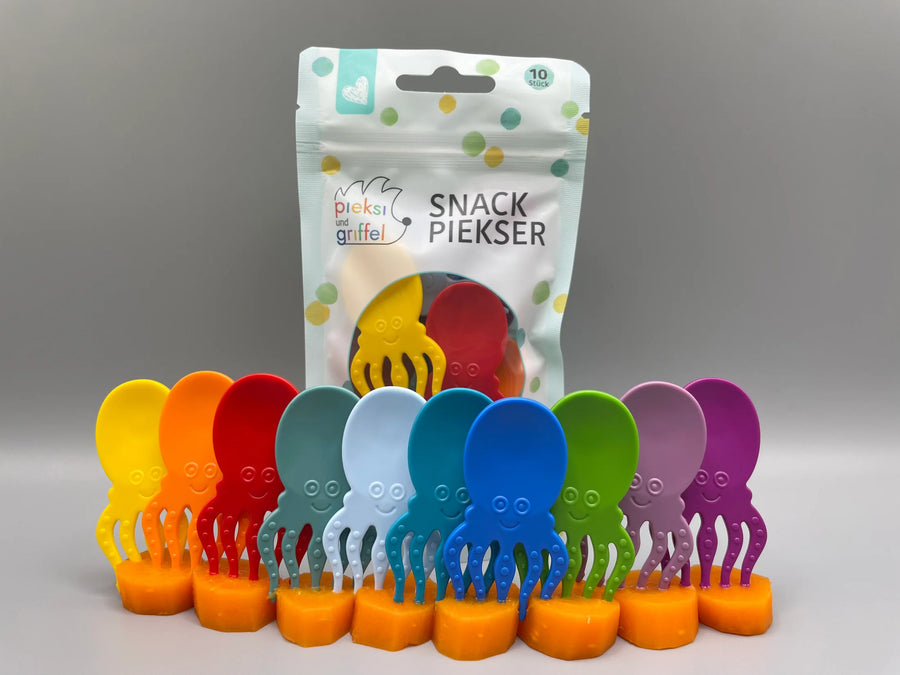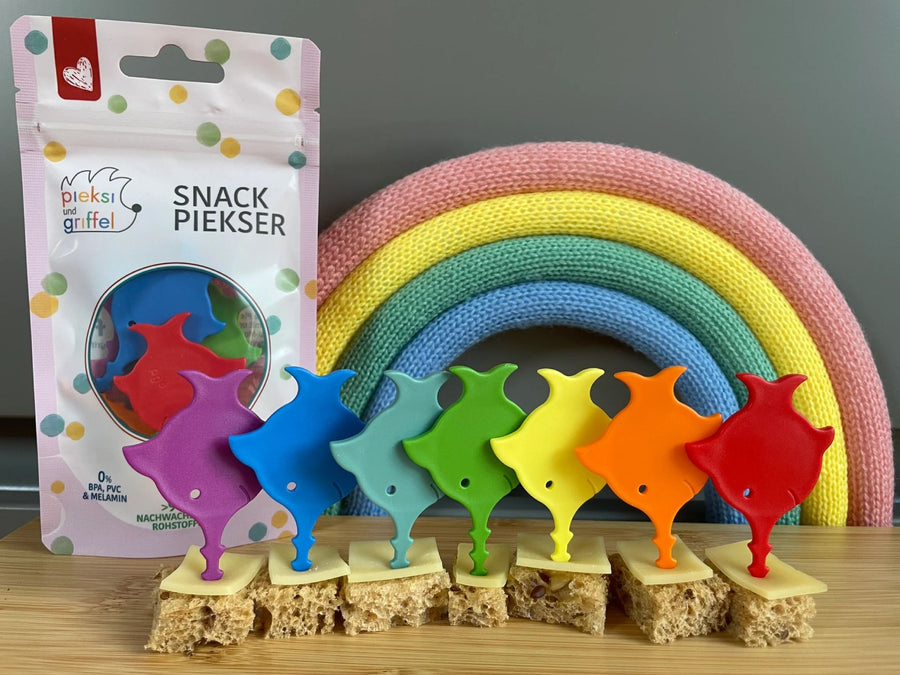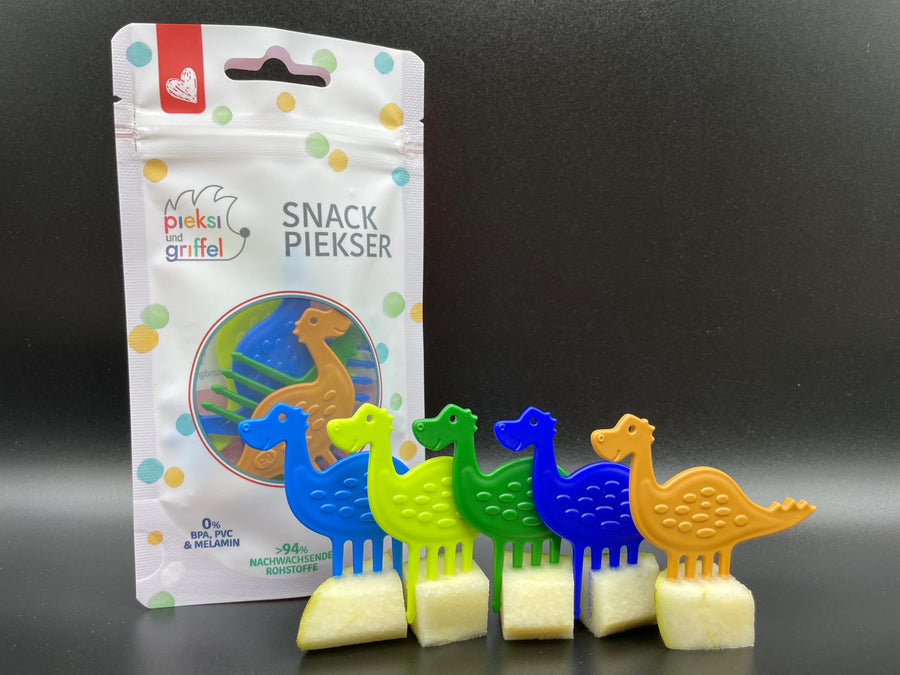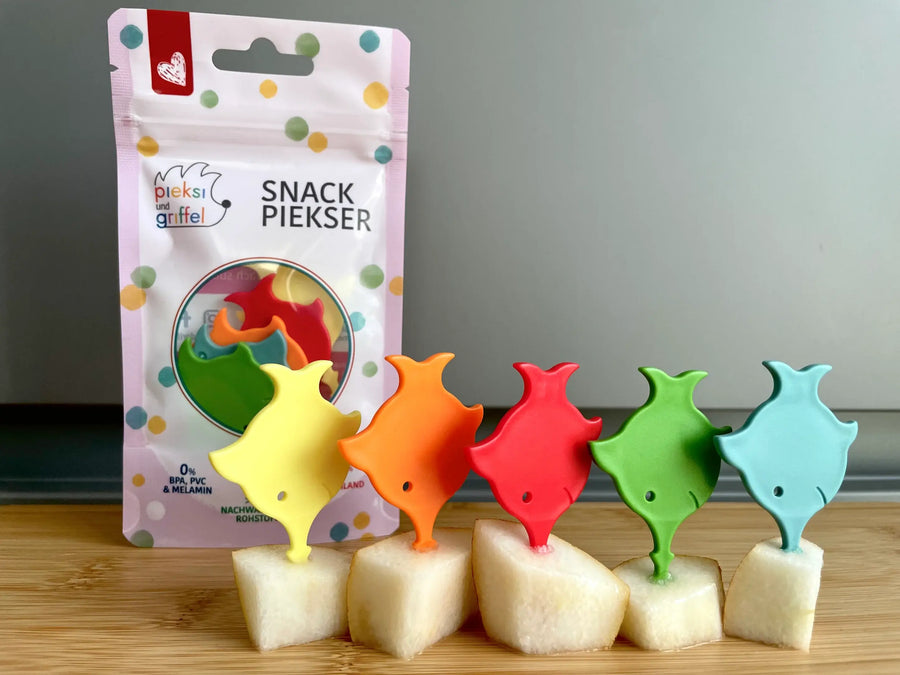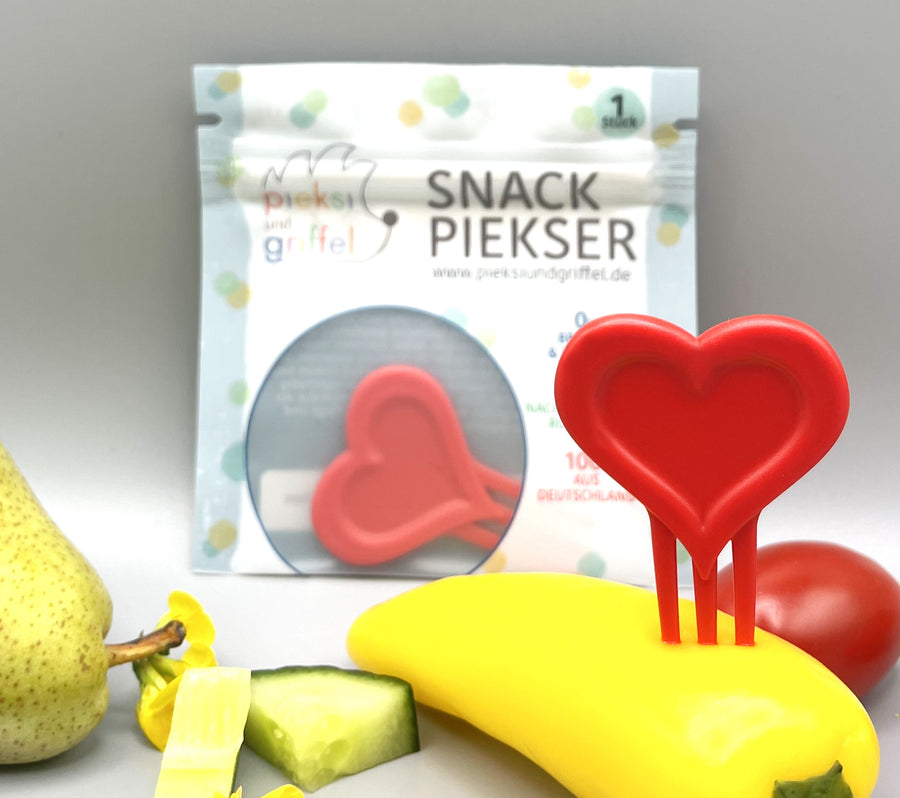Snack Piekser from Pieksi and Griffel
Discover the original, robust, and virtually unbreakable snack picks from Pieksi and Griffel, perfect for small and large hands in a wide variety of colors and designs. Suitable for use from weaning age. Free of PBA, PVC, and melamine . Made from over 94% renewable resources. A family-owned company from Baden-Württemberg – 100% made in Germany. Also available in Switzerland.
Sustainable snack pieks: fun for children's birthdays and everyday life
Pieksi and Griffel are funny snack pieks that not only make learning to eat fun, but are also sustainable. These mini forks are developed and produced with a lot of love in Germany, specially designed for children in kindergarten, daycare and school. They consist of 94% renewable raw materials, such as sugar cane and sugar beet, with the remaining 6% consisting of approved additives and color granules for material properties and the colorful design. The packaging is also completely recyclable thanks to the use of mono-plastic and is free of aluminum film.
Originally only available as a cute little hedgehog, the Piekser range has now expanded to include other animal motifs: hedgehogs, swordfish, turtles and dinosaurs. This design makes the Piekser ideal for various occasions, such as the start of complementary foods, children's birthdays or for on the go. Thanks to their size, they are easy for small hands to grasp, the material is easy to grip and the pricks are almost indestructible. Through the playful element, they motivate children to try new or unloved foods and thus support learning to eat with cutlery.
Pieksis are generally easy to clean and can be placed in the dishwasher, although treatment with running water and mild detergent is preferred. They should only be used under adult supervision and checked regularly for safety. Before the first use and after each subsequent use, thorough cleaning is essential, whereby the dishwasher's care instructions for plastic items must also be followed.
The Snack Pieksers from Pieksi and Griffel are a prime example of a successful combination of fun, functionality and sustainability. Not only do they make children smile, they also do something good for the environment by relying on renewable raw materials and using completely recyclable packaging. Created in the south of Baden-Württemberg, they represent the joy and enthusiasm that goes into their development and production.


